Background
Page was born to James Patrick Page and Patricia Elizabeth Gaffikin in the west London suburb of Heston on 9 January 1944. His father was an industrial personnel manager and his mother, who was of Irish descent, was a doctor's secretary.


1977
7000 Coliseum Way, Oakland, CA 94621, United States
A stone henge themed stage set at the Oakland Coliseum concert on 23 July 1977 in California, the show that signalled the end of their golden age. The band had to flee California after Peter Grant and John Bonham were charged with assaulting a security guard backstage, and Robert Plant's five-year-old son died of a respiratory infection soon afterwards.
1966
The Yardbirds in 1966.
1968
John Bonham, Robert Plant, Jimmy Page and John Paul Jones in 1968.
1970
Kensington Gore, South Kensington, London SW7 2AP, United Kingdom
Jimmy Page at Royal Albert Hall - January 9, 1970.
1975
Earl's Court, London, England, United Kingdom
Robert Plant and Jimmy Page performing at Earl's Court, May 1975.
1977
7000 Coliseum Way, Oakland, CA 94621, United States
A stone henge themed stage set at the Oakland Coliseum concert on 23 July 1977 in California, the show that signalled the end of their golden age. The band had to flee California after Peter Grant and John Bonham were charged with assaulting a security guard backstage, and Robert Plant's five-year-old son died of a respiratory infection soon afterwards.
1985
S Broad Street, Philadelphia, Pennsylvania 19148
Robert Plant and Jimmy Page of Led Zeppelin perform at Live Aid in Philadelphia on July 13th, 1985.
1988
4 Pennsylvania Plaza, New York, NY 10001, United States
Robert Plant and Jimmy Page of Led Zeppelin perform at a 40th Anniversary Tribute to Atlantic Records at Madison Square Garden in New York on May 14th, 1988.
2005
Westminster, London SW1A 1AA, United Kingdom
Jimmy Page and Brian May meet Queen Elizabeth II at the Music Day At The Palace event at Buckingham Palace in London on March 1st, 2005.
2008
1 National Stadium S Rd, Chaoyang, China
Jimmy Page performs with Leona Lewis during the closing ceremony for the 2008 Olympic Games in Beijing on August 24th, 2008.
The Yardbirds promo.
Jimmy Page talks with the band's manager Peter Grant – the relationship between the two of them was crucial to Zeppelin's success – aboard the band's private jet, known as "the starship."
Young Jimmy Page
Young Jimmy Page
Young Jimmy Page
Young Jimmy Page





























Page was born to James Patrick Page and Patricia Elizabeth Gaffikin in the west London suburb of Heston on 9 January 1944. His father was an industrial personnel manager and his mother, who was of Irish descent, was a doctor's secretary.
Page studied at Danetree Secondary School, but left it to pursue music.
Page became a session musician and a producer, working in England's thriving rock scene with such acts as the Rolling Stones, the Kinks, and the Who. In 1965, Page was asked to join the Yardbirds, a blues-influenced rock band, which had just scored a big hit with "For Your Love." The band wanted him to take over for Eric Clapton, who left the group for John Mayall's Bluebreakers. Page turned them down and recommended fellow session musician and legendary guitarist-in-the-making Jeff Beck. The Yardbirds sought out Page again the following year, and he finally agreed to become a band member.
For a short period of time, the Yardbirds had two lead guitarists, Page and Beck. Beck left in late 1966 because ill health and a possible nervous breakdown. After Beck's departure, the Yardbirds released Little Games (1967), but they could not match their earlier success. The band fizzled out in 1968, and Page formed a new band to play some remaining Yardbirds concert dates. Initially calling themselves the New Yardbirds, the band consisted of John Paul Jones on bass and keyboards, John "Bonzo" Bonham on drums, and Robert Plant on lead vocals.
Quickly renaming themselves Led Zeppelin, the band toured the United States as the opening act for the American rock group Vanilla Fudge. They released their first album, Led Zeppelin I in 1969, which earned mixed reviews. As John Mendelsohn wrote in Rolling Stone magazine, "Jimmy Page, around whom the Zeppelin revolves, is, admittedly, an extraordinarily proficient blues guitarist and explorer of his instrument's electronic capabilities. Unfortunately, he is also a very limited producer and a writer of weak, unimaginative songs, and the Zeppelin album suffers from his having both produced it and written most of it (alone or in combination with his accomplices in the group)." While critics may not have been thrilled by their work, music fans enjoyed such tracks as the now classic "Dazed and Confused." Their songs showcased Page's skills as a musician, often featuring his intense guitar riffs.
Led Zeppelin soon developed a strong following. Music fans really enjoyed the band's hard rock and heavy metal sound. Their second album, the aptly titled Led Zeppelin II (1969), featured "Whole Lotta Love," "Ramble On," and "Heartbreaker." "Whole Lotta Love" reached the No. 4 spot on the pop charts, and the album reached the top of the charts by year's end. Again, Page worked behind the scenes, serving as producer for the recording. He also wrote or helped to write the music for many of the band's songs while Plant served as the group's main lyricist.
In 1970, Led Zeppelin released the more folk-influenced Led Zeppelin III. The single, "Immigrant Song," became the band's latest hit. Many critics saw the group's fourth album, however, as their best work. This 1971 untitled work is sometimes called the Runes Album for the symbols on the cover, which reflected Page's interest in the occult. The album offered listeners such songs as the legendary "Stairway to Heaven," which became one of most requested rock songs of all time despite its startling 8-minute length. "Black Dog" and "Rock and Roll" were other significant tracks from that album.
With 1973's Houses of the Holy, Led Zeppelin continued its domination of the rock world. The album went to the top of the charts and featured the hit "D'yer Mak'er." The band launched their own record label, Swan Song Records, in 1974, and worked with such acts as Bad Company.
The following year, Page and the rest of the group enjoyed great success with the double album Physical Graffiti. The recording contained such hits as "Trampled Underfoot." That August, however, the band was forced to take a break as Plant recovered from injuries sustained in a car accident. Their next effort, 1976's Presence, proved to be a disappointment.
In addition to their recordings, Led Zeppelin was one of the most successful live acts of the 1970s. Some of their performances were captured in the 1976 concert film The Song Remains the Same. Off stage, they became infamous for their excessive lifestyles, which led to the group's downfall. Bonham died at Page's house outside London in September 1980. After doing some heavy drinking, Bonham choked to death on his own vomit. Losing Bonham affected Page deeply - he couldn't play music for months after the incident. The rest of the band had similar feelings, and they decided that Led Zeppelin could not continue without Bonham.
Returning to music as a composer, Page penned the score to the Charles Bronson film Deathwish II (1982). In 1984, he formed a group called the Firm with Paul Rodgers, formerly of Bad Company and Free. Page was also arrested that year for drug possession. The Firm released a self-titled album in 1985, which did well commercially but earned lackluster reviews. Their next effort, 1986's Mean Business, did not fare as well.
Page reunited with John Paul Jones and Robert Plant in 1985 to play the international benefit concert Live Aid. They were joined on stage by drummers Tony Thompson and Phil Collins. They played together again in 1988 for the special concert held in honor of Atlantic Records 25th anniversary. This time, however, Jason Bonham, son of the late John Bonham, filled in on drums.
That same year, Page released his solo debut, Outrider, which featured Robert Plant and drummer Jason Bonham. He returned the favor by working on Plant's own effort, Now and Zen. Page's next album was a collaboration with former Whitesnake and Deep Purple vocalist David Coverdale. Coverdale/Page was released in 1993 to little notice.
In 1994, Page reunited with Plant for No Quarter: Jimmy Page and Robert Plant Unledded to recreate Led Zeppelin classics as acoustic works. They also recorded a few new songs for this project, which consisted of a television special and an album. The pair also went on tour together in 1995. That same year, Led Zeppelin was inducted into the Rock and Rock Hall of Fame.
Page then teamed up with The Black Crowes in 1999 for a concert in England that led to a highly praised U.S. tour with the band. The concerts were produced into a live album called Live at the Greek the following year. He planned on touring with the Black Crowes that year, but he had to back out after hurting his back.
On 3 June 2011, Page played with Donovan at the Royal Albert Hall in London. The concert was filmed. Page made an unannounced appearance with The Black Crowes at the Shepherd's Bush Empire in London on 13 July 2011. He also played alongside Roy Harper at Harper's 70th-birthday celebratory concert, in London's Royal Festival Hall on 5 November 2011.
On 30 September 2014, Page – who hasn't toured as a solo act since 1988 – announced that he would start a new band and perform material spanning his entire career. He spoke about his prospects for hitting the road, saying: «I haven't put [musicians] together yet but I'm going to do that next year. If I went out to play, I would play material that spanned everything from my recording career right back to my very, very early days with The Yardbirds. There would certainly be some new material in there as well...».
Page is widely considered to be one of the greatest and most influential guitarists of all time. Rolling Stone magazine has described Page as "the pontiff of power riffing" and ranked him number 3 in their list of the "100 Greatest Guitarists of All Time". In 2010, he was ranked number two in Gibson's list of "Top 50 Guitarists of All Time" and, in 2007, number four on Classic Rock's "100 Wildest Guitar Heroes". He was inducted into the Rock and Roll Hall of Fame twice; once as a member of the Yardbirds (1992) and once as a member of Led Zeppelin (1995).
Page's obsession with Aleister Crowley led to whispers that he is a Satanist; yet another rumor claimed that the members of Led Zeppelin had made a Faustian bargain in exchange for stardom. There's no evidence Page was a Satanist, though he believed in Crowley's philosophy of personal liberation. (He even had Crowley's dictum "Do what thou wilt" inscribed in the run-off groove of the original vinyl releases of Led Zeppelin III.) Page did little to deflect the rumors throughout Zeppelin's history, perhaps sensing they were good for business. "I don't really want to go on about my personal beliefs or my involvement in magic," he told Rolling Stone. "I'm not interested in turning anybody on to anybody that I'm turned on to. If people want to find things, they find them themselves."
Jimmy Page is mostly non-political.
Jimmy Page is into magick and the occult. He has maintained a strong interest in Crowley for many years. In 1978, he explained: "I feel Aleister Crowley is a misunderstood genius of the 20th century. It is because his whole thing was liberation of the person, of the entity and that restrictions would foul you up, lead to frustration which leads to violence, crime, mental breakdown, depending on what sort of makeup you have underneath. The further this age we're in now gets into technology and alienation, a lot of the points he's made seem to manifest themselves all down the line. ...I'm not saying it's a system for anybody to follow. I don't agree with everything but I find a lot of it relevant and it's those things that people attacked him on, so he was misunderstood....I'm not trying to interest anyone in Aleister Crowley any more than I am in Charles Dickens. All it was, was that at a particular time he was expounding a theory of self-liberation, which is something which is so important. He was like an eye to the world, into the forthcoming situation. My studies have been quite intensive, but I don't particularly want to go into it because it's a personal thing and isn't in relation to anything apart from the fact that I've employed his system in my own day to day life....The thing is to come to terms with one's free will, discover one's place and what one is, and from that you can go ahead and do it and not spend your whole life suppressed and frustrated. It's very basically coming to terms with yourself."
Jimmy Page is active in Action for Brazil's Children Trust.
Page has acknowledged heavy recreational drug use throughout the 1970s. In an interview with Guitar World magazine in 2003, he stated: "I can't speak for them [other members of the band], but for me drugs were an integral part of the whole thing, right from the beginning, right to the end." After the band's 1973 North American tour, Page told Nick Kent: "Oh, everyone went over the top a few times. I know I did and, to be honest with you, I don't really remember much of what happened."
In 1975, Page began to use heroin, a claim attributed to Richard Cole, who stated that Page (in addition to himself) was taking the drug during the recording sessions of the album Presence in that year and that Page admitted to him shortly afterwards that he was addicted to the drug.
Quotes from others about the person
"I don't think anyone has epitomized riff writing better than Jimmy Page. He's one of the great brains of rock music." - Brian May
French model Charlotte Martin was Page's partner from 1970 to about 1982 or 1983. Page called her "My Lady." Together they had a daughter, Scarlet Page (born in 1971), who is a photographer.
From 1986 to 1995 Page was married to Patricia Ecker, a model, and a waitress. They have a son, James Patrick Page (born April 1988). Page later married Jimena Gómez-Paratcha, whom he met in Brazil on the No Quarter tour. He adopted her oldest daughter Jana (born 1994) and they have two children together: Zofia Jade (born 1997) and Ashen Josan (born 1999). Page and Paratcha divorced in 2008.
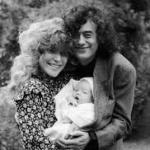
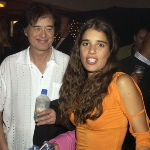
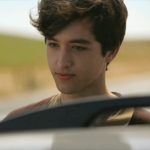
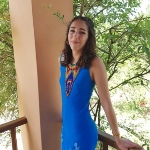

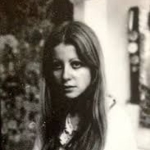
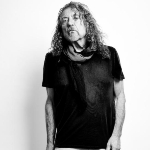
Robert Anthony Plant is an English singer, songwriter, and musician, best known as the lead singer and lyricist of the rock band Led Zeppelin.
